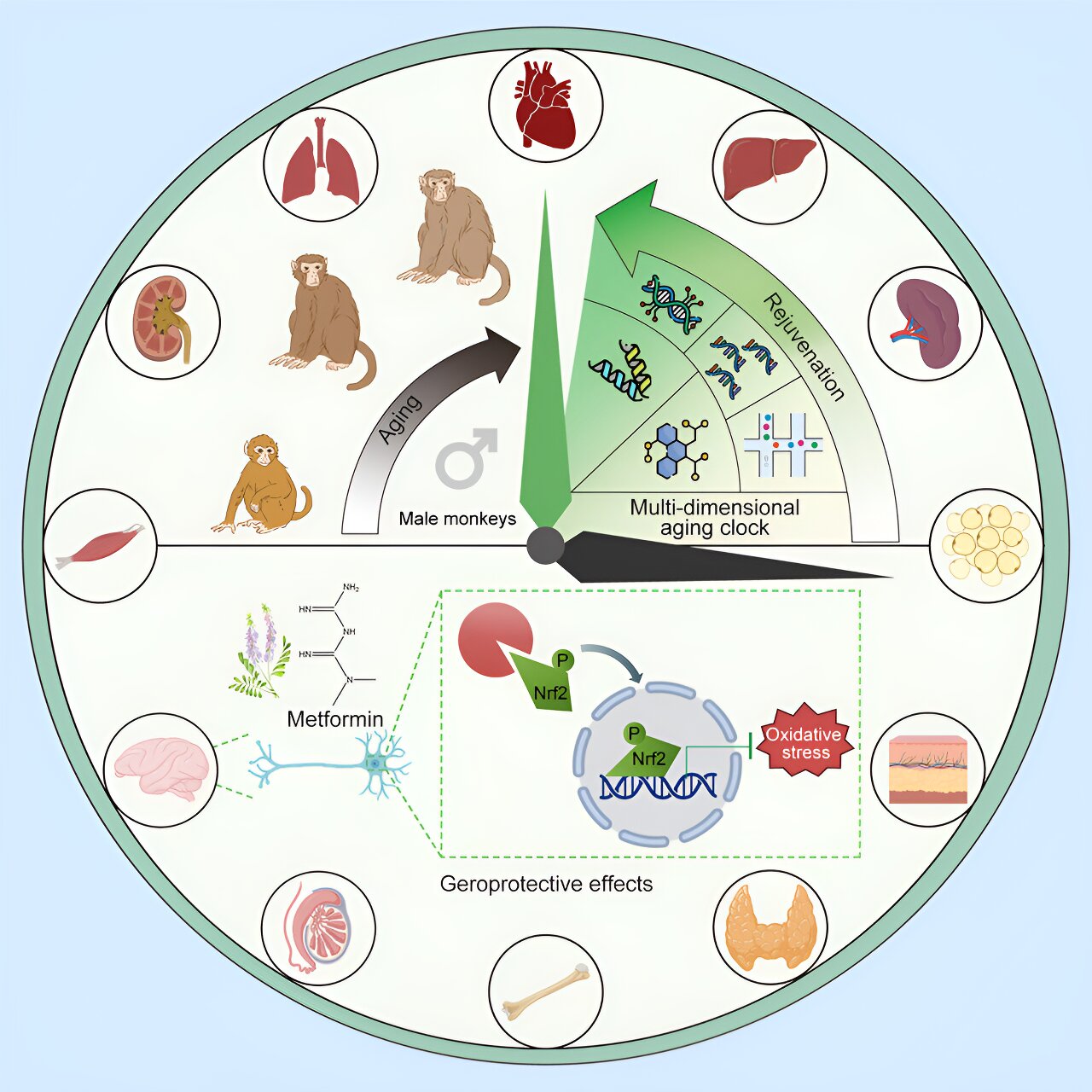
METFORMIN FOUND TO REDUCE ORGAN AGING IN MALE MONKEYS
A team of biologists affiliated with multiple institutions in China, working with a colleague in the U.S., has found that giving cynomolgus monkeys the diabetes drug metformin can reduce aging in multiple organs, including the brain.
In their paper published in the journal Cell, the group describes their nearly four-year study involving the impact of metformin on the body that they conducted with several cynomolgus monkeys and what they learned from them.
Prior research and anecdotal evidence have suggested that the drug metformin, which has historically been given to help treat patients with type 2 diabetes, has some degree of anti-aging component. Studies involved in giving it to rodents, flies and worms have found hints of rejuvenation, and people taking the drug long-term have also reported feeling younger the longer they took the drug. In this new effort, the research team conducted a 40-month study designed specifically to learn more about the drug's impact on mammalian biological age.
The work by the team involved giving 12 elderly male cynomolgus macaques and 18 other cynomolgus monkeys the drug daily over the course of 40 months. Before and periodically throughout the study, the researchers collected tissue samples from multiple organs, imaged their brains and conducted physical and mental tests to monitor any changes to their biological age down to the cellular level.
The research team found evidence of a slowdown in biological aging in many of the organs, including the kidneys, lungs and the skin. They also found that the organ that seemed to benefit the most was the brain.
All the monkeys saw a slowdown in age-related decline—some to the extent that their neural activity resembled that of a same-type monkey six years younger. In a closer look at how the drug might help slow age-related brain decline, the researchers found that it activates cells that produce a protein called NRF2, which prior research has shown protects against cell damage during bouts of inflammation.
The research team acknowledges that their study was limited by its single-gender focus, duration, and the number of monkeys involved, and because of that, suggests that a much larger and longer study be undertaken—one that includes human testing.
More information: Yuanhan Yang et al, Metformin decelerates aging clock in male monkeys, Cell (2024). DOI: 10.1016/j.cell.2024.08.021
© 2024 Science X Network
This story was originally published on Medical Xpress. Subscribe to our newsletter for the latest sci-tech news updates. 2024-09-13T16:51:20Z dg43tfdfdgfd